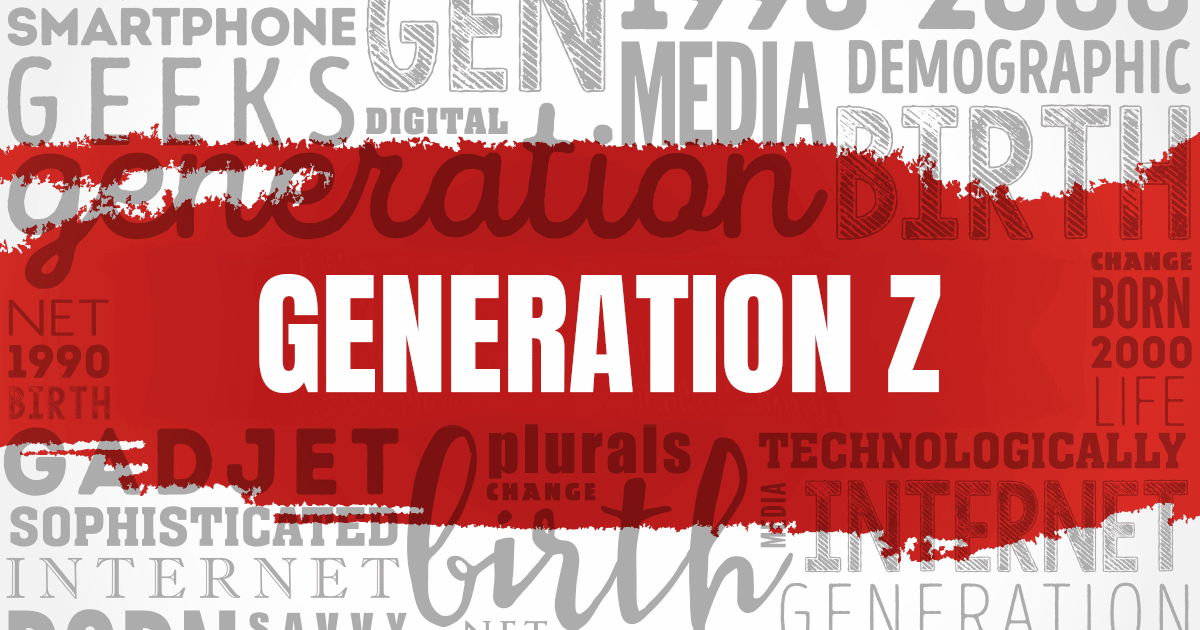As the newest named generation, you may think of Gen Z as a group of children and teens. But the reality is that the oldest of this group is now 24 years old! This means Gen Z has officially entered the workforce!
There are many stereotypes regarding Generation Z talent including that they are disloyal, unfocused and that they possess very little soft skills.
By the year 2030 Gen Z employees are expected to triple, meaning that people born between 1997 and 2012 will soon make up 30% of the global workforce and will therefore play a crucial role in shaping the workplace for decades to come. Due to the ever-changing technological advancements and fast-paced life they are confronted with today, there is often the assumption that it might be challenging for them to stay focused and remain attentive in their task.
Gen Z individuals are coveted in the tech talent market, as they are energetic and eager to learn, as well as bring fresh ideas and new perspectives to rapidly growing companies. Therefore, adapting to their work ethos and deciding what attracts and motivates Gen Z individuals to a job role should be management’s priority during the recruitment process.
Provide flexibility
If the pandemic has taught us anything, it is that workplace flexibility is an expectation today. According to a January 2022 LinkedIn survey, Gen Z is the generation that are most likely to have either left their organization or are considering leaving due to inflexible work policies. The clear takeaway for anyone hoping to land Gen Z talent is to create more hybrid and remote positions. However, due to the pandemic many people crave in person collaboration with colleagues, suggesting that a hybrid work model would be the most beneficial for attracting Gen Z employees. Embracing a culture of flexibility and allowing employees in and out-of-office schedules would motivate them more. This is also a way for Gen Z individuals to control their work-life-balance, which is a major concept in today’s employment market.
Offer career development opportunities
Gen Z employees like to see that they can grow and develop within the company – rise up the ranks. Understanding what motivates Generation Z talents is vital to attracting and maintaining them as part of the company’s team. Young people tend to appreciate training programs, new prospects, job rotation and increased skill variety. Making sure this generation have diversified job roles and that they find their job challenging rather than stagnating is crucial.
Establishing clear progression frameworks are key to attracting Gen Z candidates since without them employees would get frustrated in their position, due to the lack of focus on their development, which could lead them to leave the organization.
Offer long-term compensation
Gen Zers are looking to be offered long-term incentives such as for example stock options or long-term cash incentives, as they are keen to be involved in building up a company’s success and being compensated for it later, rather than focusing on reaching short term targets and receiving annual bonuses.
Generation Z candidates have grown up watching their parents navigate the 2008 market crash, losing their jobs due to the Covid 19 pandemic and have experienced the effects of global climate change. The latter experiences have affected Gen Z candidates’ views on workplace longevity and proven to them that the future is uncertain, making them seek stability in an unstable world. Therefore, providing clear career paths, mentorship programs and training can attract Gen Z to your company as it shows them that you value them for the long-term potential they bring to your company, not just for their short-term ability to fill an entry-level job role.
Attractive job descriptions
It is important for recruiters to create job descriptions that Gen Z individuals would find attractive. For example, Gen Z employees value the impact their work would have on a social and sustainable level. This suggests that employers should refrain from writing traditional job descriptions that describe rigid set of tasks or responsibilities for the position but also further focus on the outcomes and impact the role could have on the mission of the organization on a wider scale. In other words, the task descriptions should answer questions such as “How will this particular role contribute to the company’s overall execution of its mission?”
Use text recruiting for low-pressure interactions
Text messaging is a low-pressure interaction and is quick to respond to (averaging 90 seconds) and less formal than a phone call or email. Recruiters can take advantage of text messaging to communicate with Gen Z candidates in a way that is familiar and accessible to them. With text recruiting software, recruiters can automate sending and receiving texts and support efficiency, compliance, and scale within their process.
In the battle for talent, it’s key to ensure your recruitment practises are futureproof. Create your plan of attack with one of our expert GRS Consultants today info@grsrecrutiment.comor call the office +357 2534 2720 or +356 21680800.
